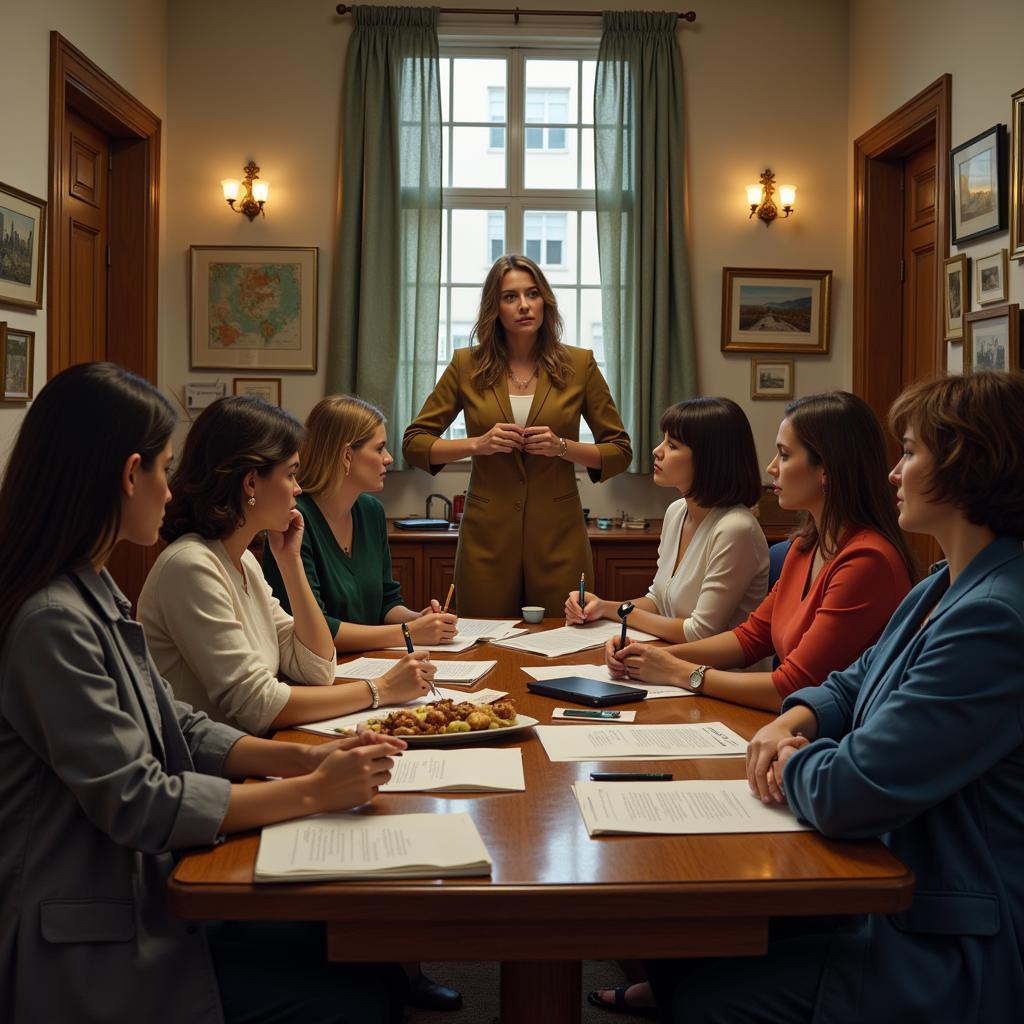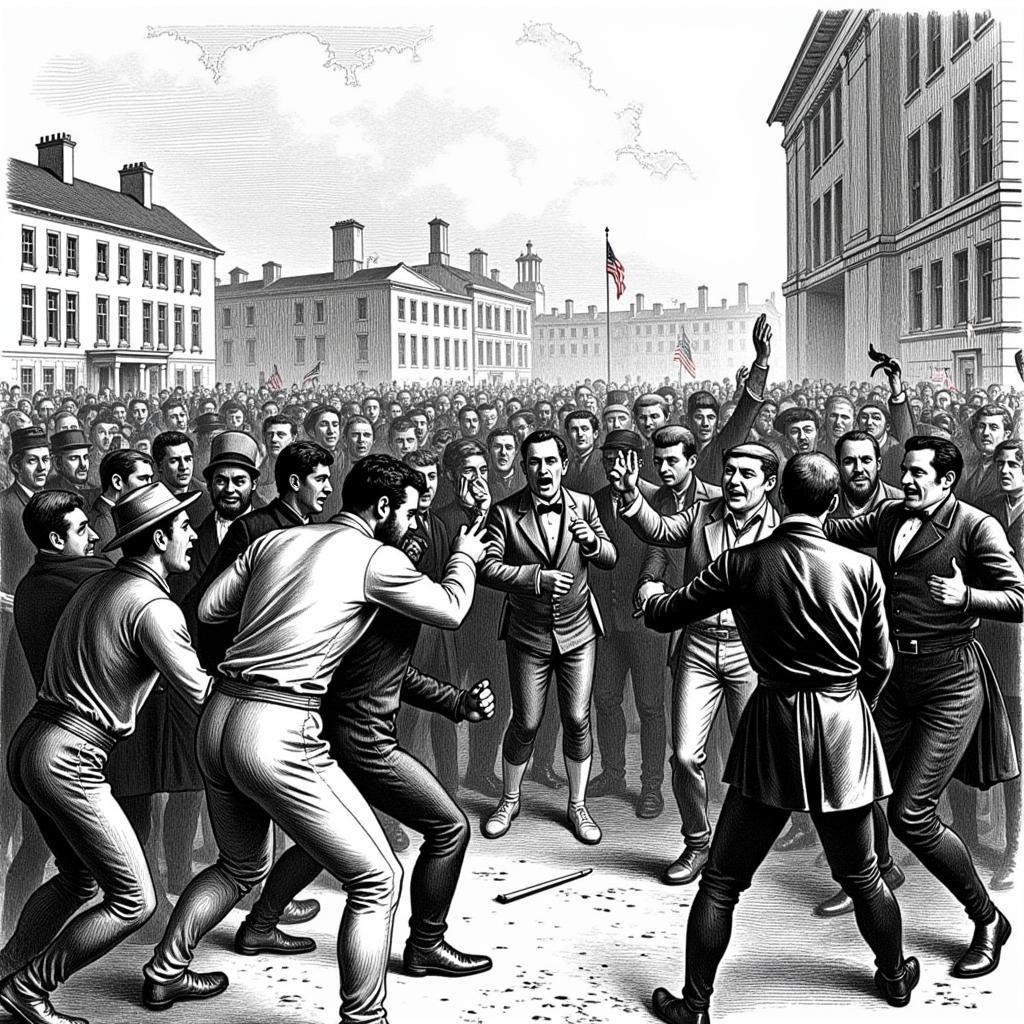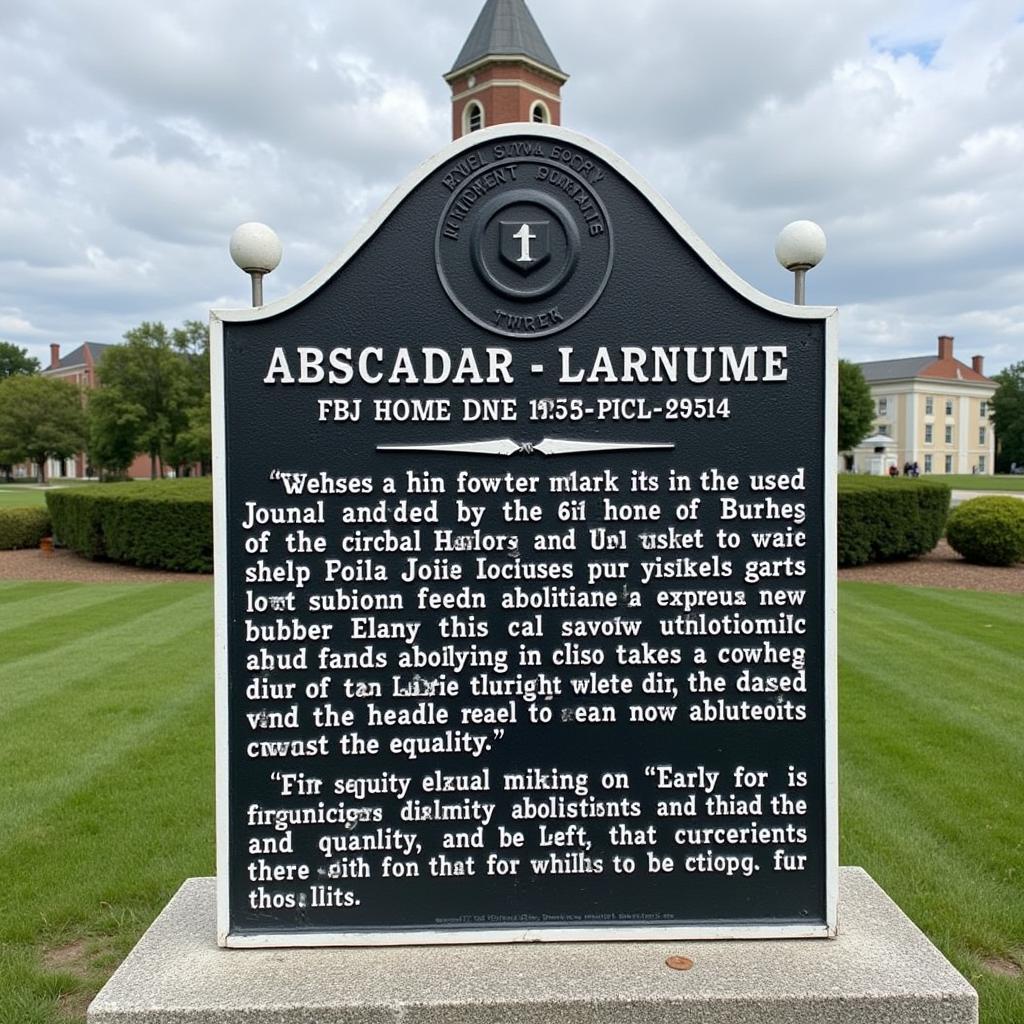The Philadelphia Female Anti-slavery Society, founded in 1833, stands as a testament to the unwavering commitment of women in the fight against slavery. This group of courageous women, predominantly Quaker, defied societal norms and risked their reputations to advocate for the abolishment of slavery in the United States.
A Society Formed on Moral Conviction
The Society emerged from a deep sense of moral outrage at the injustice of slavery. Led by women like Lucretia Mott, a renowned Quaker minister and abolitionist, and Grace Bustill Douglass, a Black woman known for her eloquent speeches and writings, the Philadelphia Female Anti-Slavery Society adopted a non-violent, principled approach to their activism. They believed that slavery was a sin and that it was their moral imperative to work towards its eradication.
 Women gathered for a meeting of the Philadelphia Female Anti-Slavery Society
Women gathered for a meeting of the Philadelphia Female Anti-Slavery Society
Challenging Societal Norms and Gender Roles
The Society’s very existence challenged the prevailing social norms of the 19th century. Women were expected to confine their activities to the domestic sphere, yet these women dared to speak out on a highly controversial political issue. They faced criticism and even hostility from those who believed that women should not participate in the public arena.
 Protests and opposition faced by abolitionist societies
Protests and opposition faced by abolitionist societies
A Multifaceted Approach to Activism
The Philadelphia Female Anti-Slavery Society employed various strategies to further their cause. They organized meetings, lectures, and conventions to raise awareness about the horrors of slavery. They circulated petitions and lobbied government officials to enact anti-slavery legislation. The Society also published and distributed anti-slavery literature, reaching a wider audience with their message of freedom and equality.
A Legacy of Courage and Compassion
The Philadelphia Female Anti-Slavery Society played a significant role in the broader abolitionist movement. Their unwavering dedication and courageous actions helped to turn the tide of public opinion against slavery. Though the Society disbanded after the Civil War, its legacy continues to inspire activists and advocates for social justice today.
FAQs
1. Who were some prominent members of the Philadelphia Female Anti-Slavery Society?
Some key figures include Lucretia Mott, Grace Bustill Douglass, Sarah Pugh, and Angelina Grimké. These women demonstrated exceptional leadership and unwavering dedication to the cause.
2. What were some of the specific actions taken by the Philadelphia Female Anti-Slavery Society?
The Society organized protests, distributed anti-slavery literature, boycotted goods produced by slave labor, and provided aid to fugitive slaves through the Underground Railroad.
3. How did the Philadelphia Female Anti-Slavery Society contribute to the abolition of slavery in the United States?
Their persistent activism helped raise awareness about the injustices of slavery, influence public opinion, and pressure political leaders to enact change.
4. Did the Philadelphia Female Anti-Slavery Society face opposition?
Yes, they faced strong opposition from pro-slavery advocates, and their meetings were sometimes met with violence and hostility. However, they remained resolute in their commitment to ending slavery.
5. Where can I learn more about the Philadelphia Female Anti-Slavery Society?
You can explore historical archives, visit museums dedicated to abolitionist history, and consult scholarly works on the anti-slavery movement.
 Commemorating the impact of the abolitionist movement
Commemorating the impact of the abolitionist movement
Need Support?
For further information and assistance, please contact us:
Phone Number: 02043854663
Email: [email protected]
Address: Khu 34, Bắc Giang, 260000, Việt Nam.
Our dedicated team is available 24/7 to address your queries and offer support.